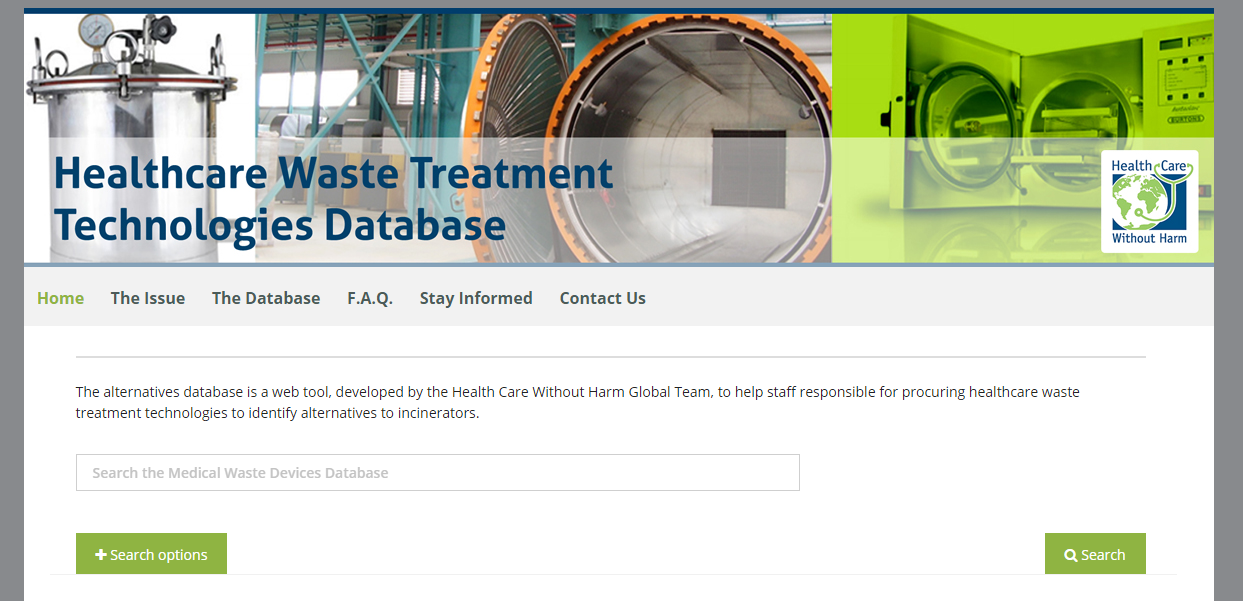Geneva - On February 23-24, the World Health Organization’s (WHO) Safe Injection Global Network (SIGN) will be meeting to launch the new WHO policy on Injection Safety. Every year, SIGN meets to facilitate collaboration and synergies among participants of the safe injection global network. This year, the Director General of the WHO will be presenting the new policy on Injection Safety, which calls for health systems to use only injection devices with needlestick injury and reuse prevention features in health services.
As part of this event, Ruth Stringer, Health Care Without Harm’s (HCWH) International Science and Policy Coordinator will report on the waste management implications of the new policy, and the starting of the WHO/HCWH/UNDP/GEF Global Healthcare Waste Project in Africa that will demonstrate model health-care waste management and best environmental practices. These best practices will include non-incineration healthcare waste treatment and mercury-free technologies and ensure the availability and affordability of non-incineration waste treatment technologies in the region.
Stringer will also present and demonstrate HCWH’s new global Healthcare Waste Treatment Technologies Database.
The database has been created to aid hospitals and health systems in the procurement of appropriate technologies, and lists suppliers from around the world of non-incineration technologies, such as autoclaves, different steam and heat based technologies, and chemical based technologies to treat infectious wastes and destroy pathological wastes and laboratory cultures. It also includes equipment such as needle or syringe destroyers that can help prevent needlestick injuries. Information about each vendor includes contact details, countries where equipment is
The database aims to “reduce carbon emissions, particulate air pollution and prevent releases of carcinogenic dioxins and furans as called for by the Stockholm Convention”, said Stringer. The database can be found at: www.medwastealternatives.org
Susan Wilburn, Sustainability Director of Global Green and Healthy Hospitals – a project of HCWH - will also be chairing one of the panels. She said: "HCWH celebrates this historic event which will support health workers to do their job more safely and effectively for their patients and their own health."
Also attending the meeting are Mahesh Nakarmi, Director of the Healthcare Waste Management program of HCWH’s Strategic Partner, Health Care Foundation Nepal (HECAF) and Saraswoti Thakuri. HECAF has been developing the medical waste management system at the country’s oldest major hospital, the 460 bed Bir Hospital in Kathmandu, since 2010. Thanks to their intervention, the hospital is now almost completely mercury free and is autoclaving the infectious waste from the wards and chemically deactivating cytotoxic pharmaceutical waste. While HECAF led the project, HCWH has worked closely with them and provided technical expertise on issues from validating the disinfection processes, reporting, biodigestion and chemical disposal.
Learn more
- Database of Waste Treatment Technologies
- Tools for Setting Up a Sound Healthcare Waste Management System, presentation from Ruth Stringer at the SIGN meeting
- Learn more about HCWH's Health Care Waste Program
- Learn more about Global Green and Healthy Hospitals
- Watch video and learn more about HECAF’s work in Nepal
- WHO's Website
Contact Information
- Ruth Stringer, HCWH International Science and Policy Coordinator, rstringer@hcwh.org
- Susan Wilburn, Sustainability Director of Global Green and Healthy Hospitals, swilburn@hcwh.org
- Alejandra Livschitz, HCWH Communications Coordinator for Global Projects,Alejandra@hcwh.org
- Mahesh Nakarmi, Director of the Healthcare Waste Management program of Health Care Foundation Nepal (HECAF), mahesh.nakarmi@gmail.com
Websites
- Health Care Without Harm: www.noharm.org
- Healthcare Waste Treatment Technologies Database: www.medwastealternatives.org
- Global Green and Healthy Hospitals: www.greenhospitals.org
- Health Care Foundation Nepal: www.hecaf.org.np
